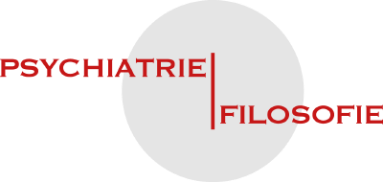Two webinars: Andrew Scull and Owen Whooley
Andrew Scull
Andrew T. Scull is emeritus professor Sociology and Science Studies at the University of California, San Diego. He is as sociologist, and reseracher in the social history of medicine, with a particular focus on the history of psychiatry. He is author of 'Madhouse: A Tragic Tale of Megalomania and Modern Medicine' and 'Madness in Civilization: A Cultural History of Insanity'.
Webinar: The biological turn in psychiatry. From eugenics and compulsory sterilization to deep brain stimulation
Andrew Scull: "I will examine how the optimism that greeted the birth of psychiatry and the asylum in the early nineteenth century collapsed in the last third of the nineteenth century, leading to the rise of degeneration theory and of eugenics. In the first half of the twentieth century, the crisis of confidence led in two different directions: the move to sterilize the mentally ill, with the California legislation along these lines influencing the Nazi policy of compulsory sterilization, and this in turn leading Germany to engage in the mass murder of the mentally ill. Alternatively, psychiatrists desperate to reclaim their identity as part of a healing profession sought somatic treatments for what they continued to believe was a biological illness. I explore the therapeutic experimentation which resulted in the period between 1915 and the late 1940s, and the peculiar vulnerability of the mentally ill to these extraordinary interventions. Finally, I examine the extent to which this problem has persisted in more recent times."
Owen Whooley
Dr. Owen Whooley is an associate professor of sociology at the University of New Mexico. His research focuses on medical professionals, specifically the history of professional politics in the United States. He has written two books – Knowledge in the Time of Cholera: The Struggle over American Medicine in the Nineteenth Century (University of Chicago Press, 2013) and On the Heels of Ignorance: Psychiatry and the Politics of Not Knowing (University of Chicago Press, 2019) – both of which won the Robert K. Merton Book Award from the American Sociological Association. For more information, go to www.owenwhooley.com.
Webinar: Psychiatry, the DSM, and the problem of ignorance
Owen Whooley: 'The history of the American psychiatry is a curious one. Marred by insecurity, uneasily situated within medicine, and ever threatened by anti-psychiatry sentiment, the psychiatric profession has faced repeated legitimation crises over its 180-year existence. Underlying this history is a stubborn, inconvenient fact: knowledge regarding the mechanisms of mental distress remains elusive. This talk examines how American psychiatry has maintained its professional authority despite gaps in its knowledge base. To manage its ignorance and the recurrent crises it creates, American psychiatry has adopted a strategy of reinvention – cyclical transformations to the fundamental purpose and character of the profession that serve to reframe psychiatric ignorance as temporary. To highlight these dynamics, the talk focuses on the contemporary period of American psychiatry, which has been dominated by the Diagnostic and Statistical Manual of Mental Disorders (DSM) and the (heretofore unfilled) promise of the biomedical model.'
